by Jas Faulkner
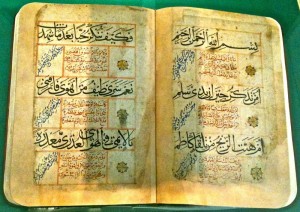 In those odd moments when there can be plenty to do and yet the mind wants to wander through Binkley’s anxiety closet, it is easy to come up with hypothetical catastrophes that put us through a Green Beret-level obstacle course. We see the thin veneer of civilisation stripped away as a mob mentality nudges thousands of people off the side of a cliff in a carb-fueled rage, all neatly battered, fried, and served on a biscuit with a side of fear and loathing of The Other.
In those odd moments when there can be plenty to do and yet the mind wants to wander through Binkley’s anxiety closet, it is easy to come up with hypothetical catastrophes that put us through a Green Beret-level obstacle course. We see the thin veneer of civilisation stripped away as a mob mentality nudges thousands of people off the side of a cliff in a carb-fueled rage, all neatly battered, fried, and served on a biscuit with a side of fear and loathing of The Other.
Those of us who are caretakers of libraries, whether they’re large public archives of wisdom passed down through the centuries or linen closets that have been converted into repositories of books we have known and loved; we have all wondered what we would do if we only had a small, undisclosed time to save what we could. What would we grab first? Who could we trust to protect what we hold dear? As a bit of woolgathering, it’s scary but there is the comfort that, at least for now, the chances of seeing our libraries destroyed is fairly remote.
For Alia Muhammad Baker, the head librarian at Al Basra Central, this scenario was all too real. In 2003, she came to work to find that 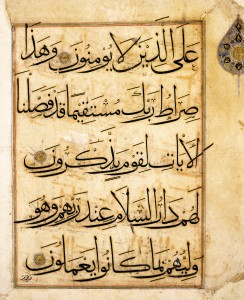 the Iraqi government was setting up artillery on the roof of the library. When she asked local government officials, she was told that enemy military would not attack a library and she had little to worry about.
the Iraqi government was setting up artillery on the roof of the library. When she asked local government officials, she was told that enemy military would not attack a library and she had little to worry about.
Ms.Baker was not convinced. There was an historic precedent for this. The Nizamiyah Library was destroyed by Mongol invaders in the Thirteenth Century. The buildings were ransacked and the books they housed were tossed into the Tigris. Narratives of the event claimed the river flowed blue with the ink of those ruined volumes. Not too long after the artillery placement was complete and government offices were installed in the building, Ms. Baker learned that some of Al Basra Central’s texts that were housed at the main library in Baghdad had been destroyed as occupation forces moved through the city. They were at Iraq’s main library because they were being prepared for shipment to the UK where they would be studied by linguists whose specialty was antiquarian textual research.
Now those books and the information they contained were lost forever. The vision Alia Muhammad Baker carried in her head of the Baghdad collection’s destruction haunted her. Every destroyed book meant another voice from Iraq’s past was silenced. She was determined that the precious collection under her care would not meet a similar fate.
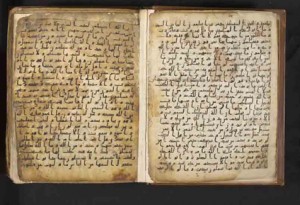 With the help of local business owners, Ms. Baker began to smuggle the books out of the library. At first she hid them in the backroom of a nearby restaurant. Armload by armload, the room was soon filled and other merchants came to her aid, gently taking the pieces of Iraq’s past into their own hands and hiding it away in anticipation of more peaceful days ahead.
With the help of local business owners, Ms. Baker began to smuggle the books out of the library. At first she hid them in the backroom of a nearby restaurant. Armload by armload, the room was soon filled and other merchants came to her aid, gently taking the pieces of Iraq’s past into their own hands and hiding it away in anticipation of more peaceful days ahead.
When occupation troops moved into Basra, prayers were answered as the soldiers seemed to move right past the books. As one rescuer put it, “It was almost like they were not visible to the soldiers.”
Alia managed to smuggle out roughly seventy percent of the library’s collection when the building was razed. While the savagery of battle took its toll on the people of Basra, Ms Baker, her assistants and neighbourhood people -some of whom couldn’t read- found themselves to be part of a new kind of Friends of the Library as they made safe places in their homes for the 30,000 books.
The library was eventually rebuilt in 2004. Ms Baker, who is quite rightly viewed as a hero returned as the head of the library. While the library was not one that permitted the loan of books in its earlier incarnation, Baker was known to press a volume into the hands of someone whose heart and mind would not rest unless it was fed with words. A quote that is often associated with Ms. Baker testifies to her love of learning:
“In the Koran, the first thing God said to Muhammad was ‘Read.'”
–Alia Muhammad Baker
Every person who stepped forward brought a small piece of the richness, the blessing of those books back to Al Basra Central. The mix of hearts to hands to minds to (re)connection with the wisdom that blesses us with knowledge about who we are is powerful. As long as we respect knowledge and wisdom and recognise that it is both precious and powerful, we are impervious to anything or anyone that would strip away the gift of being human.
That is what Alia Muhammad Baker knows.
That is what her friends and neighbours understood as they helped her.
That is what I hope you understand every time you pick up a book.

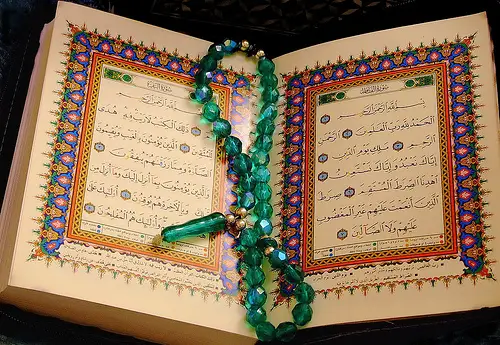
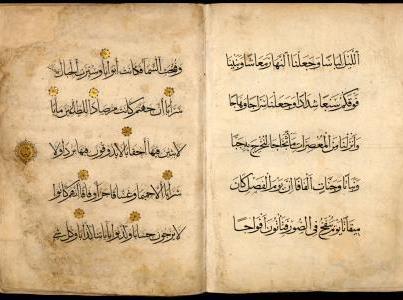
Beautifully written. What an amazing woman with an amazing legacy to leave.
It’s hard to find sufficient words to describe her and the community who supported and continues to support her work. Every time I discovered another fact about the way she ran the library before the war and what happened after, I kept wondering if I could adequately convey who these people are.
Thaks for liking the article! I’m glad you did!